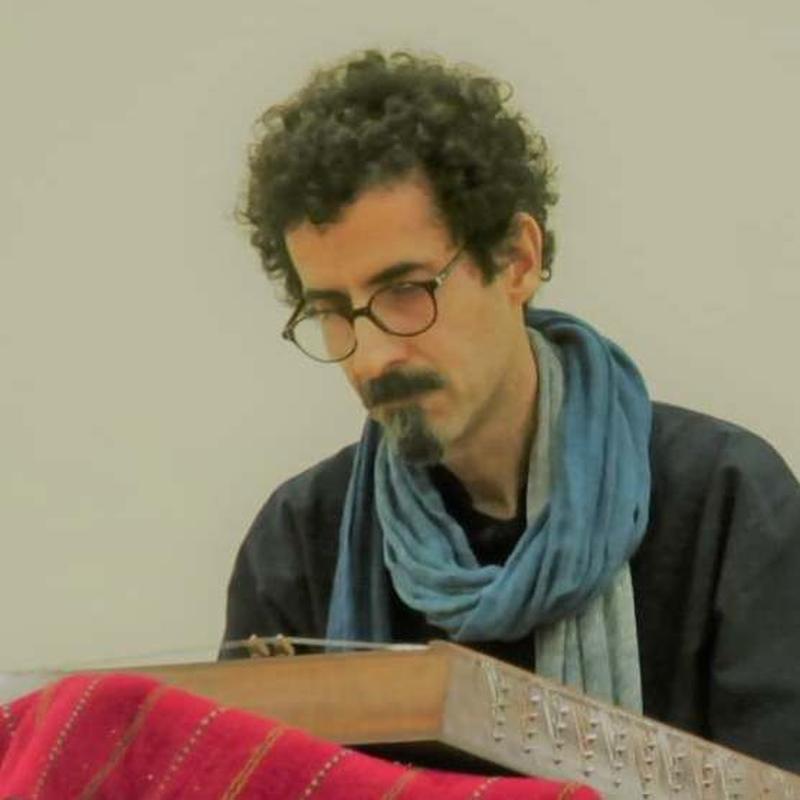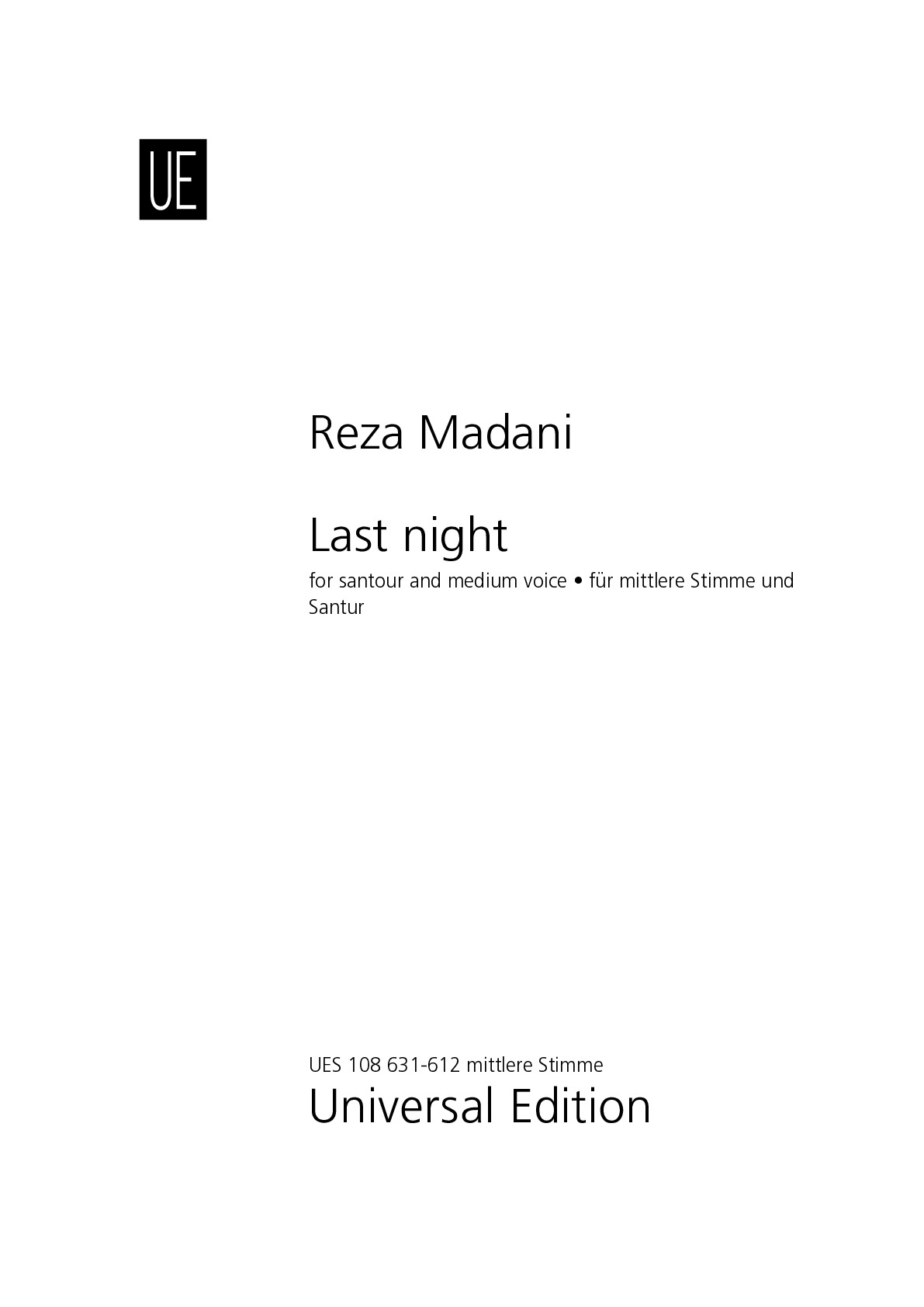

Reza Madani
Last night
Duration: 3'
Solos:
medium voice
santur
Last night
Translation, reprints and more

Reza Madani
Last nightOrchestration: for santour and medium voice
Type: Dirigierpartitur

Sample pages
Audio preview
Video
Work introduction
I composed this work on a love poem of the same name (Doosh in Persian) by the 14th-century Persian poet Hafez. The santour part uses long and short tremolos over the melody line. The voice part could sustain over the duration of the notes or use slight vibrations to mimic the tremolos of the santour. It should follow the melody when the same syllable moves up or down the scale.
A technique native to santour playing involves breaking chords or melody notes across two or more octaves. As illustrated in the santour score under the word simile, it is recommended that the entire santour accompaniment employ this technique. However, to maintain readability, the notation in the santour score is presented in a single register without octave breaks. Refer to the “additional materials” section to see how this technique is applied to the A section of this piece. Additionally, Chapter 7: "Playing in octaves on the santour" from my book, Santour insights | Universal Edition, provides a detailed description of this technique.
What is necessary to perform this work?
Mode and tonality
This piece is written in E harmonic minor scale.
Hammer signs
In Persian, the hammers used to play the santour are called mezrabs. In the music score, hammer signs are indicated by a V for the left-hand mezrab and an n-like shape for the right-hand mezrab.
Section names
Different sections of the piece are marked with the letters A, B, C, and D.
